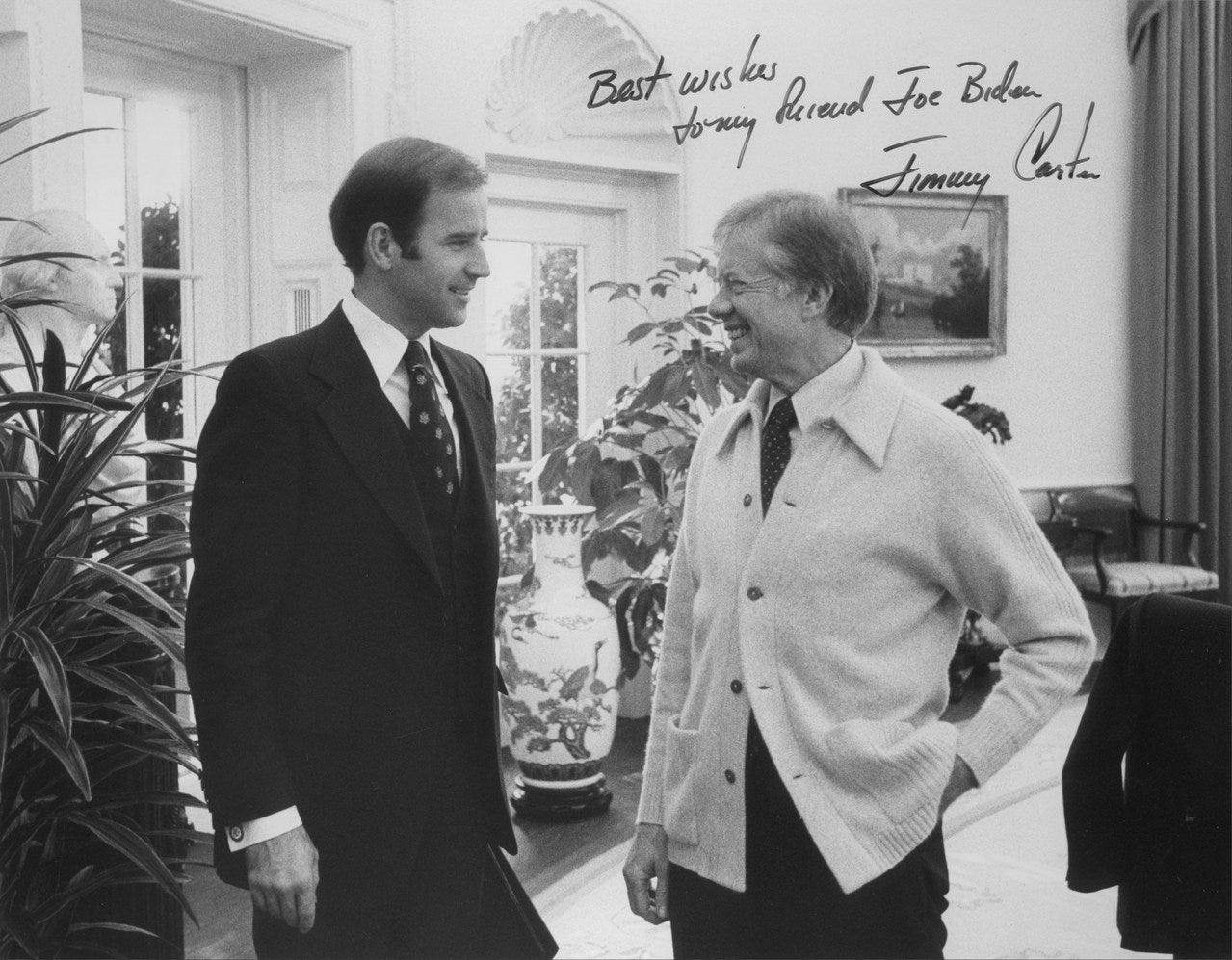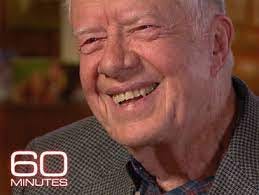Welcome to Second Rough Draft, a newsletter about journalism in our time, how it (often its business) is evolving, and the challenges it faces.
It’s not often in the welter of American politics that almost everyone settles on the same short-hand description of anything, but with respect to the incumbent President of the United States, they largely have. He’s old.
This is, of course, a fact. Joe Biden, nearing 81, is the oldest president we’ve ever had, and yet, so far (and admittedly to my surprise) he’s running for re-election. The only person who might foreseeably end up older as president is Biden’s leading opponent right now, Donald Trump, who, if elected again, would be older, by the middle of his next term, than Biden is today.
Why are we talking about this?
The age issue seems to loom larger with Biden than Trump, I think, for a number of reasons. First, Biden is older. Second, Biden makes more concessions to age—in his gait, in the pace of his speech, in not dying his hair or bronzing his face. Third, Trump has long since been seen, by almost all but his core supporters, as already the very things one might most worry about in an older leader: erratic, unstable, ill-informed, inattentive to the important details of the presidency.
The age issue is a legitimate one. Before Biden, the oldest president we ever had was Ronald Reagan, who left office just before his 78th birthday, and who, toward the end of his second term, seems clearly in retrospect to have been in the early stages of the Alzheimer’s that robbed him of productive years and eventually took his life. Trump, by the way, will pass the same age Reagan was on his last day in office before the Republican National Convention meets next Summer. Trump’s father died of Alzheimer’s.
I raise all of this because of what seems to me an astonishing lack of journalistic inquiry about a subject of such profound importance. In short, where is the reporting about whether Joe Biden is still up to his job? He certainly looked it last week, jetting off to Israel, giving a strong prime time Oval Office speech and adroitly managing the crisis, but was that just expert stage management?
What we need to know
Sure, the matter gets discussed all the time, especially in venues like Fox News. And people scrutinize video of Biden. But almost all of this is speculation and armchair gerontology; very little is rooted in facts. Is Biden speaking more slowly because he’s conscious that his lifelong stutter might now be taken for cognitive frailty, or because he has no choice? Is he walking more cautiously because he knows the political peril of falling, or because he can no longer go any faster? If you think you know the answers to those questions, what is your evidence? I know of very little, either way.
And if you are as old as I am (66), or even if you just spend time around people of the generation or your parents and grandparents, you know that some people in their early 80’s could still effectively handle intellectually demanding jobs, and some couldn’t. Which of these is the current President?
Instead of staring at videos of an older man walking, or speaking briefly to reporters, or giving a prepared speech, where is the reporting? How much time does Biden spend each day working? (Trump didn’t spend that much when he was president, getting to the office late and leaving early, but you did know from his tweeting that he was watching TV about himself at all hours.) To what extent does Biden remain the true decision-maker, as opposed to his staff? (No doubt about Trump there, often unfortunately.) How much debate about contentious issues does Biden personally entertain, and what do witnesses take away from his participation?
How much, if any, reading does he do, upstairs, over the store, on an average night? How extensive are his comments, in writing or in meetings? How many of the words in speeches are his own? If he is sometimes too fatigued to work, what difference does it make? Have there been useful trips foregone? Important meetings not held or foreshortened? Do congressional or foreign leaders find him responsive or confused on phone calls?
The New York Times and Washington Post each have about seven White House reporters; the Wall Street Journal has six. Could some of them, or one of their more enterprising and nimble competitors, please find and publish answers to these questions? A great deal seems to hinge on them.





Always asking the right questions👍❗️
Really good points, Dick!